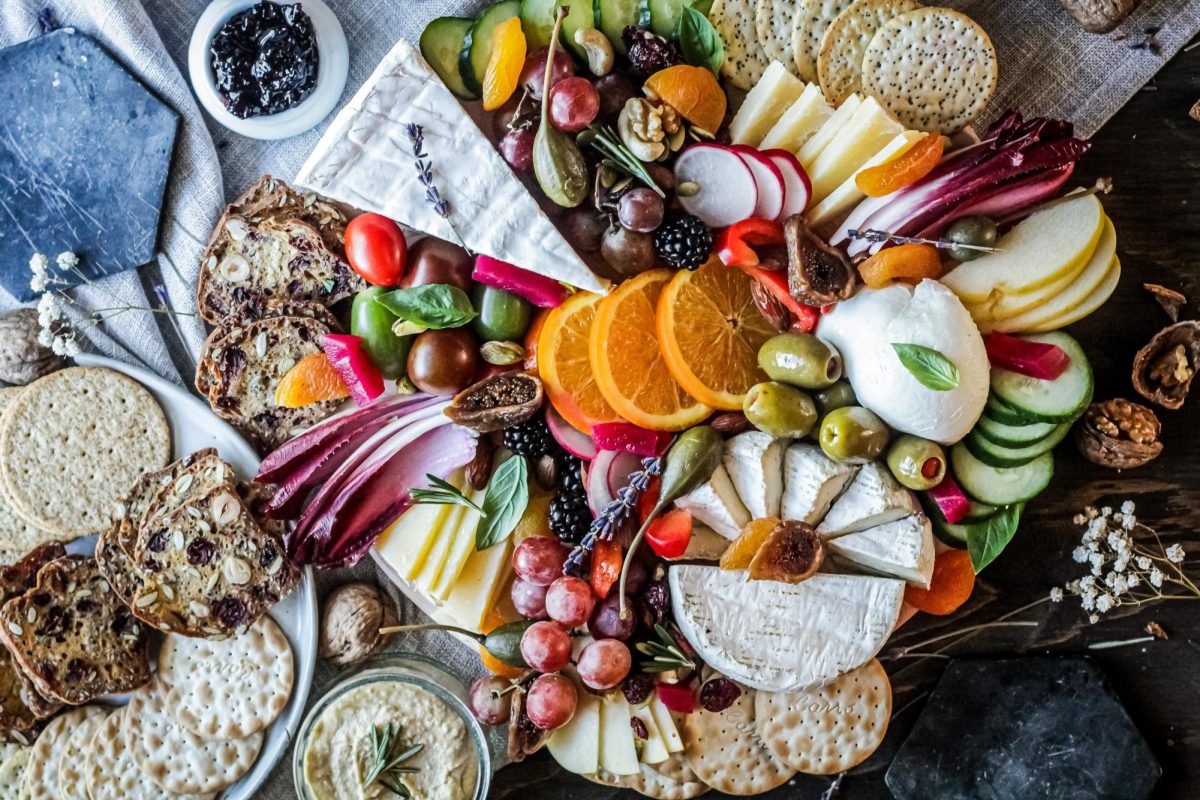It’s late, and you still haven’t eaten dinner. You don’t need to impress anyone, so you grab a box of crackers, some cheese, dry cereal and a clementine. This type of meal is now a trend, called “girl dinner.”
This trend, started by TikTok influencer Olivia Maher, began as a way to joke about how she would eat when she wasn’t expected to prepare a “proper” meal. In many ways, this goes against gender roles usually expected of women. Traditionally, women are expected to prepare lavish meals (for their husband, of course) every night. To have a meal that requires no preparation, that consists only of what you like, goes against this sexist expectation.
But I’ve recently seen a shift in this trend.
Social media has been known to exacerbate eating disorders and girl dinner, despite its origins, is no exception. Many TikToks in the girl dinner trend, rather than glorifying low-effort snacky dinners, glorify eating almost nothing at all. In one TikTok, a woman pours herself a bowl of ice for dinner. Another girl dinner is made up of a single slice of cheese.
It’s worth mentioning that an off-shoot of girl dinner has emerged: “boy dinner.” Boy dinner seems to mainly consist of large portions of meat and other hearty, filling foods.
Despite having originally gone against gender roles, the trend is now contributing to the stereotype that women must be small and eat almost nothing, and that men must eat a lot.
“Dinner” is not the only word being given the “girl” prefix. “Girl” is now being used to describe all sorts of activities, most often denoting certain activities that are considered feminine. For example, “girl math” is used to describe poor budgeting. One of the ideas behind girl math is that if you make an unnecessary purchase using cash, you haven’t truly spent any money. This is a funny way to justify buying things you don’t really need, but by referring to it as “girl math” we are perpetuating the harmful stereotype that women are bad at math and therefore cannot handle their own money.
These stereotypical activities, which feminists have long tried to separate from womanhood, are now being defined as wholly female again. What began as a deviation from traditional feminine gender roles has now become a way of reinforcing them.
Many of these examples bring to mind the kind of old-timey humor that depends solely on women and men being considered so different, they are nearly different species. The strangest thing is that these sexist stereotypes are not being labeled as “girl” activities by your run-of-the-mill misogynists. My perusing of the girl dinner tag on TikTok showed me that the main users of this trend are young, liberal-leaning female TikTokers. Most of the girls contributing to this trend do not actually believe women are inferior in any way, but they still make jokes about traditionally feminine activities being innate to womanhood. Why is that?
When we are young, most of what constitutes our identity comes from what we are told. One of the first things we are told about ourselves is our gender. But, part of growing up is deciding who we are for ourselves outside of what’s expected of us. Sometimes this involves deciding our own genders for ourselves, or simply what exactly our gender means to us.
This self-determination is no easy task. It is far more comfortable to conform to what is expected of you as it gives us a sense of acceptance and community.
We are not going to solve our own crises of identity by conforming to what “girls” are supposed to do. Because what are girls supposed to do? According to gender roles — and now TikTok — it’s eating small meals and shopping. There is absolutely nothing wrong with enjoying things that are stereotypically feminine. But to assume that those things are innate is when it begins to feel like we are stepping backwards in the progress towards equal rights.
Grace Jungmann can be reached at [email protected].



















